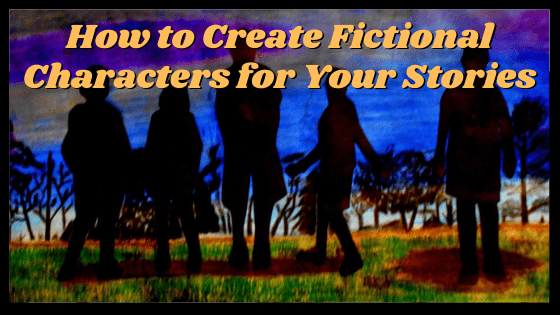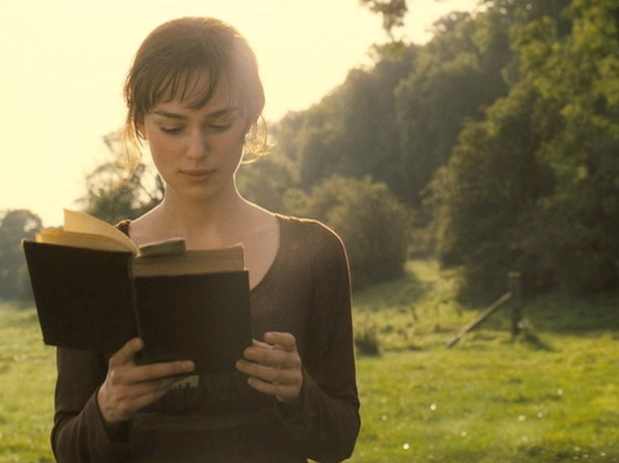How To Create A Fictional Character
I am the author of three middle-grade children's books, and I blog on the side. My favorite topics are movies, writing, and pop culture.

Laura Smith via Canva
Casting Fictional Characters to Bring Your Story to Life
Readers open a book for the story, but they stay for the characters. Good characters are a crucial part of the storytelling process. They have to be realistic, well-rounded, and integral to the plot. Here are some tips on how to create fictional characters for your stories.
Forrest and Jenny Through the Years

Create a Back Story For Your Characters
Create a history for your main and supporting characters, including details that will never be mentioned on the page. The more important the character, the longer their history should be. Give yourself an understanding of why they say the things they say and make the choices that they make. Even include what will happen to them after the story ends. You are the creator of the world so you should know everything that comes before and after their time in your particular tale.
Lizzy Bennett Reads a Good Book

Celebrity Visualization
If you're having trouble visualizing a character, how they look and move, think of who would play them in a movie or TV version of your story. Direct that actor in your head so that you can put a real life face on this made up character.
Actors have very specific ways of speaking, moving, and looking, and they are easy to see in different types of roles. Focusing on a particular performance that you have seen the actor give several times, including a specific accent, expression, or action will help you to describe what you want your audience to see in their heads with your characters.
Names
I have trouble coming up with names for my characters. Last names are especially difficult for me, but I've developed some resources to help with this. In the end, though, if a name just feels right, just go with it, or you won't be able to get out of your head, no matter how many times you use the alternative.
Baby books are a good resource in coming up with names that have specific meanings to them. If you want your character's name to reflect their personality or their destiny, a baby name book or search is crucial.
Movie credits and yearbooks are good to look through too. Thousands of names appear in list form before you, and some are bound to pop out at you. You can even blend one person's first name with another person's last name on the list to come up with a new name for your character. I like to find names that are easy for readers to pronounce. If I do use a longer name, I try not to mention it a crazy amount of times in the story.
Heritage can be important for some characters, and a strong last name for that heritage will help with that. If you want your readers to know that your character is of Italian descent, give them an Italian-sounding last name. Don't just guess. Make sure that it is authentic to their country of origin.
Theme names can really simplify things. Give all of your characters names based on Greek myths, the names of your childhood friends, etc. In one of my books, all of the characters' last names are based on street names where I lived growing up.
Keep your ears open in public. One day at the mall, a store clerk came up to me and announced that her name was Jill and asked if I needed anything. Her name stuck out to me since she was young, and it's not a common name for people her age. I made a mental note to use it for a character I am working on at the moment.
Some names just sound good and fit the character for no reason other than how they look on the page. They're not always names that I personally like. They just work, and you have to trust that comfortable feeling that you get when you see it.
A Page from My Novel Scrapbook Highlighting Some Characters' Wardrobes

Laura Smith
Wardrobe
How a character dresses is a very telling indication of what they are like, or it can be a way to deepen the character by presenting them one way and finding that they are another. A tomboy girl may dress in jeans and t-shirts and baseball caps. A rich, snobby businessman might always clad in designer suits, even on his days off.
Or maybe they don't dress for how they are but how they want to be perceived. A woman might wear pearls and fancy dresses but live in a trailer park. A teenage boy might dress in camo to seem tough and intimidating in order to keep from being bullied himself.
It's fun to play with wardrobe and how it can serve the story. A character may have a favorite jacket, sports jersey, or pair of shoes. Maybe they were given to them by someone important in their lives. Maybe they just feel comfortable in it because it suits them in one way or another. Maybe a piece of jewelry is always worn because it represents an important time in their past.
To prep for one of my novels, I searched the Internet for clothes that my characters would wear. I printed them out and pasted them into my writer's journal. As I was writing my scenes, I decided to use some of these clothes and looked through these pages to help me describe what the characters were wearing during these scenes. Each character had a different sense of style, and it helped their personalities to shine through in the text.
Read More From Owlcation
An Old Photo of My Ancestor

Laura Smith
Base Them off of Real People
The people in your life help to form your general idea of a specific type of person. So, it's normal to think about a specific person while you're writing a specific character. That can get a little lazy and even offend the original person if they read your piece and identify themselves in your work.
That's why it's best to borrow traits from several people and even make up your own to blend together into a totally original character. Make a thin person you know a heavy one in your book. Give them a different type of job; give them their dream job, even. Incorporate different likes and dislikes, health, education, temperament, age, etc. from the person that you are thinking of.
You can even write about a relative or a family friend you never met or only knew when you were young. Try to incorporate what you know or remember about them into a story, or how you would describe them at the age you are now.
A Drawing of My Main Character, Molly Bright

Laura Smith
Draw Them
If you can draw, sketch out a rough look of each of your characters, or a more elaborate one if you're up for it. If you can't draw, try it anyway. Make a cartoon version of them.
There are several books and online tutorials about drawing cartoon characters. Cartoons are made up of simple shapes that anyone can make. This will allow you to make choices as to the details of character's face and body. Do they have a big nose? Oval eyes? Stringy hair?
If you know someone who can draw, describe your character to them police-sketch style, and have them drawn for you. Talking about your characters out loud might bring more details to the surface or give you an idea for the story itself.
Cut out pictures from magazines or Google search people with the main traits of your character. You'll be surprised how close you can get to the image that you have in your head.
Keep them on a file on your computer, or print them out and tack them on your wall where you write as inspiration. I once found near-exact replicas of all of my main characters in one of my books, and I have their images pasted into my writer's scrapbook.
Dwayne Often Only Ever Said One Word on "Full House"

Catchphrases and Dialogue
Comedians study people's mannerisms and voices when they are coming up with impressions. They listen for inflections, pronunciations, accents, and catch phrases to mimic as well as view facial movements and gestures.
Think of words or phrases that you hear certain people use all the time. Come up with something similar, or use the exact words in tribute to someone you know.
I have a character in my second book who says the word "seriously" for everything from a minor annoyance to teasing to complete outrage. It helps to highlight this smart aleck, hot-headed character.
Think about the words, sayings, and quotes that you use all the time. Maybe it's something that people have heard before. Maybe it's totally original. Either way, it helps to give your characters personality and voice.
Give Every Character Something to Do
Make sure that all of your characters serve the story, even the insignificant ones. Are they there to slow things down, move it forward, throw characters off, break the tension?
Don't put them in the story and then give them nothing to do, even if it's just exhibiting an emotion that sets the tone for the scene. Have them actively participate to provide a piece of information. Allow them to be a hero, villain, or foil in some way. Give them a personality.
Don't put them in the background just to populate a scene. Make them real and interactive to beef up the scene and add to the plot.
Silhouettes of the Characters From My Second Novel

Laura Smith
Character Profiles
This is always a good exercise if you're totally blocked or need a writing exercise to do while you're waiting for inspiration, but it doesn't work for me personally in developing a character. Listing their likes and dislikes: favorite foods, favorite movies, favorite animals, minor phobias, colors they don't like, etc. doesn't help unblock me, but it might for others. It might jog your mind free of a crucial detail or plot point to work on. If it helps, do it. If it is a distraction, or you already have a good idea of what you want to do, skip it.
Go To Work
Crafting something from nothing isn't easy. You want your characters to feel real without being overdone or unrelatable. Luckily, you have an arsenal of interactions, inspiration, and imagination to help you. Blend them all together, and you'll have a cast of characters ready to help you tell your story.
How do you create new, original characters for your fiction? Leave your comments below!
Questions & Answers
Question: Is it possible for any actor/actress to play a twin to a fictional character in spite of not having any twin in real life?
Answer: Absolutely. Movie magic makes that possible.
Question: How can I create fictional characters who are twins?
Answer: I would interview real twins to find out what stereotypes to avoid and figure out why these characters need to be twins to serve the story.
Laura Smith (author) from Pittsburgh, PA on July 01, 2018:
Absolutely! I'm glad it's helpful.
msviscissitude on July 01, 2018:
Omgosh, thanks so much! I love this as a basis for creating charachters :-)
How To Create A Fictional Character
Source: https://owlcation.com/humanities/How-to-Create-Fictional-Characters-for-Your-Stories
Posted by: garciawhar1968.blogspot.com

0 Response to "How To Create A Fictional Character"
Post a Comment